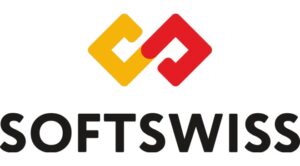Key Moments:
- GRID’s acquisition of Bayes Esports assets integrates live data tools and prediction models into its platform
- Dependable official data has started attracting greater investment and reducing operational risks for esports betting
- Recent partnerships have enabled GRID to offer scalable, multi-title data integration for operators
Challenges in Esports Data Provision
Esports betting has promised significant potential, but the reliability of available data has been a persistent obstacle. Unlike traditional sports, the esports landscape includes roughly 20 to 25 individual titles, only a handful of which are relevant for wagering. This fragmentation results in inconsistent data sources and makes it challenging for betting operators to deliver accurate, engaging products. As Moritz Maurer, founder and CEO of GRID, stated: “In esports in particular, even more than in sports, it’s very hard to create a reliable and also compelling product proposition without any data.”
Variability in data standards among different suppliers has further complicated the market, leaving operators unable to maintain uniform service quality. Maurer noted: “In general, esports operators don’t want to offer different service levels across different sports. They want to provide the best possible experience in a consistent way, otherwise it risks confusing the end consumer.”
Barriers to Investment
This lack of standardization has had a pronounced impact on funding. Maurer explained: “The fragmentation and lack of planning were hindering a lot of investment into esports products, especially by non-endemic bookmakers. If you looked at esports from an operator’s perspective, you’d have to integrate multiple data sources and multiple suppliers. The required investment compared to the perceived ROI simply doesn’t check out.”
Consolidation and Centralization of Data Rights
GRID launched seven years ago with a focus on leveraging official server-sourced data. The company’s efforts have centered on forging partnerships and developing technology to obtain these data streams directly from games. This approach has begun to pay off with recent strategic moves, including expanding their rights portfolio through collaborations such as ESL FACEIT Group and direct agreements with publishers like Riot Games.
Most notably, GRID acquired the intellectual property assets of Bayes Esports following its insolvency, incorporating Bayes’ live data trading tools, prediction models, and fan engagement technology. This acquisition marks a significant step toward centralizing esports data rights, making it more accessible for licensing and distribution, similar to developments seen in traditional sports data markets.
| Key Industry Developments | Impact on Esports Betting |
|---|---|
| GRID partners with ESL FACEIT Group and Riot Games | Enhances access to official data and broadens coverage across major esports titles |
| Acquisition of Bayes Esports assets | Integrates advanced live data, prediction, and engagement tools |
| Consolidation of fragmented rights | Reduces barriers for operators and makes data easier to license and use |
Operational Benefits of Official Data
The use of official data sources offers additional advantages by providing legal and operational transparency for operators. Maurer commented: “Through the increased involvement of the rights holders, you don’t have to worry about potentially operating in a grey area or investing in a product that might get shut down by the IP owners or rights holders.”
This legal certainty has become increasingly important as publishers clarify their positions on wagering. Riot Games, for example, has recently relaxed restrictions on gambling sponsorships in titles such as League of Legends and Valorant, reflecting the gradual normalization of betting within the esports ecosystem.
Infrastructure Designed for Industry Growth
GRID’s infrastructure is built to be agnostic to specific game titles, allowing operators to easily expand their offerings. Maurer explained: “Another conviction we had at GRID was building things in a game-title agnostic fashion. Through one integration they’ll have a very seamless experience in expanding their product from one game title to many more over time.”
This approach reduces operational costs and lowers the entry barrier for experimenting with multiple games, a crucial factor in an industry where dominant titles can change rapidly.
Looking Ahead for Esports Betting
Maurer is optimistic that widespread access to official data will mark a turning point for the sector. “We think there are huge benefits for the rights holders and the market as a whole, and we’re very excited for the innovation this will bring,” he said. “The additional revenue will flow into esports and support the continued growth of a market already in the billions when it comes to wager volume, with strong year-on-year growth.”
The esports betting industry now stands on the cusp of broader adoption. With reliable data as a foundation, the sector could realize its promise of becoming a major force within the global betting landscape.
Rome wasn’t built in a day, but your next deal could be. SiGMA Central Europe lands in Italy, 03–06 Nov 2025. With 30,000 delegates, 1,000+ exhibitors, and 550+ expert speakers, history is calling at the mother of all conferences. Be there.
- Author


